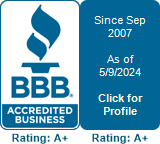Which Accounting Tasks Should Be Done Every Day, Week, or Month?
- By Admin
- •
- 25 Feb, 2019
- •

As your one-person business grows, keeping the books will naturally become more important and require more attention. That generally means moving away from paper and pencils and shoe boxes of receipts and starting to use software and checklists and professional services.
To help you smooth this transition, here are the primary accounting tasks that your business should be accomplishing daily, weekly, and monthly.
Daily Tasks
Daily accounting work is generally about entering data to keep up with business activities and keeping your books organized.
You should enter payment information, including checks or cash received and sales receipts, as soon as possible. Similarly, enter bills due as soon as you receive them so that you have accurate records of what you owe. How often to create invoices depends on your volume and the speed at which your business operates. If you have a lot of activity, then consider billing on a daily basis. Remember that the sooner you bill, the sooner you can get paid.
In addition to entering income and expense information, reconcile your bank accounts and onsite cash daily if possible. If there are any surprises among your bank transactions or with your cash on hand, you want to know about them as soon as possible to avoid creating a major cash flow issue.
Weekly Tasks
Weekly accounting tasks are all about staying on top of potential problems and providing your business with the information they need to make decisions.
Start by ensuring that all the above tasks — particularly data entry and bank reconciliation — that aren't being done every day are at least done once per week. If data entry stacks up, you don't have real-time information about how your business is doing, and you don't know who owes you and who you owe.
This is also a good time to do miscellaneous data entry work that isn't quite as time-sensitive. That could include entering automatic transactions or fees, printing client statements and sending reminders of past-due payments. Check on the payroll to verify that it's being tracked properly and everyone is being paid correctly. File documents that have built up over the week. And pay any accrued taxes as needed.
Once you've done these mid-size data entry tasks, take this time to look at your main financial reports. The cash flow report tells you how much cash you have and how it's moving. The balance sheet identifies things like whether you need to bill more, call customers for payment, or pay some vendors off.
Monthly and Quarterly Tasks
Finally, there are a few, more advanced jobs that need to be done once per month (usually at the beginning or end of each month) and every three months (quarterly). First, make accrual entries. These are entries in your books for things like prepaid expenses or income that should be accounted for in the current or next month. Check for accuracy in all your financial reports, close the month's books, and file permanent monthly reports for future use.
Once you know how the month went, take time to do some financial planning. Compare recent months' activities to see the overall trends. Is your cash flowing positively? Are customers paying slowly? Are expenses in certain areas growing too fast? Are all accrual accounts being paid out on time? Are sales matching projections? Are quotes being turned into sales at a good rate? And do you have enough cash for any upcoming expenses?
If you and your employees don't have time to get to all these operations in a timely manner or if you have trouble understanding them, it may be time to hire outside help. Depending on where you need specific help, you may want to hire a bookkeeper to help with entry and accuracy or work with an accountant to firm up your processes and create planning tools. At Williams & Associates Tax Services, we can help with all your accounting work — daily, weekly, or monthly. Call today to learn more.
One vital aspect of a business that demands careful attention is payroll management. Learn why hiring a certified accountant can improve operations.
Turning to a full-service accounting firm to outsource key CFO responsibilities might just be the solution you're looking for. Read to learn more.
Many businesses might make mistakes when filing their tax returns. Learn about a few examples of mistakes and tips on how to avoid the mistakes.
Proper accounting and bookkeeping are vital to the survival of an online business. Read this blog to learn six tips that will make these things easier.
Rather than hiding from your bookkeeping be proactive with it in order to avoid problems. Learn why proper bookkeeping matters more than you thought.
For a small- or medium-sized business owner, taxes may be frustrating. Luckily, you can lower your tax burden. Learn how in this blog.
Every business needs one or more individuals who manage and guide its finances. Learn about the details of what each accounting role does.
Running a business requires a lot of work, and much of that work involves finances. Check out these three reasons you may need forensic financial services.
Errors in bookkeeping can have a large impact on your finances. Read on to learn five common errors and how to safely avoid them in the future.











